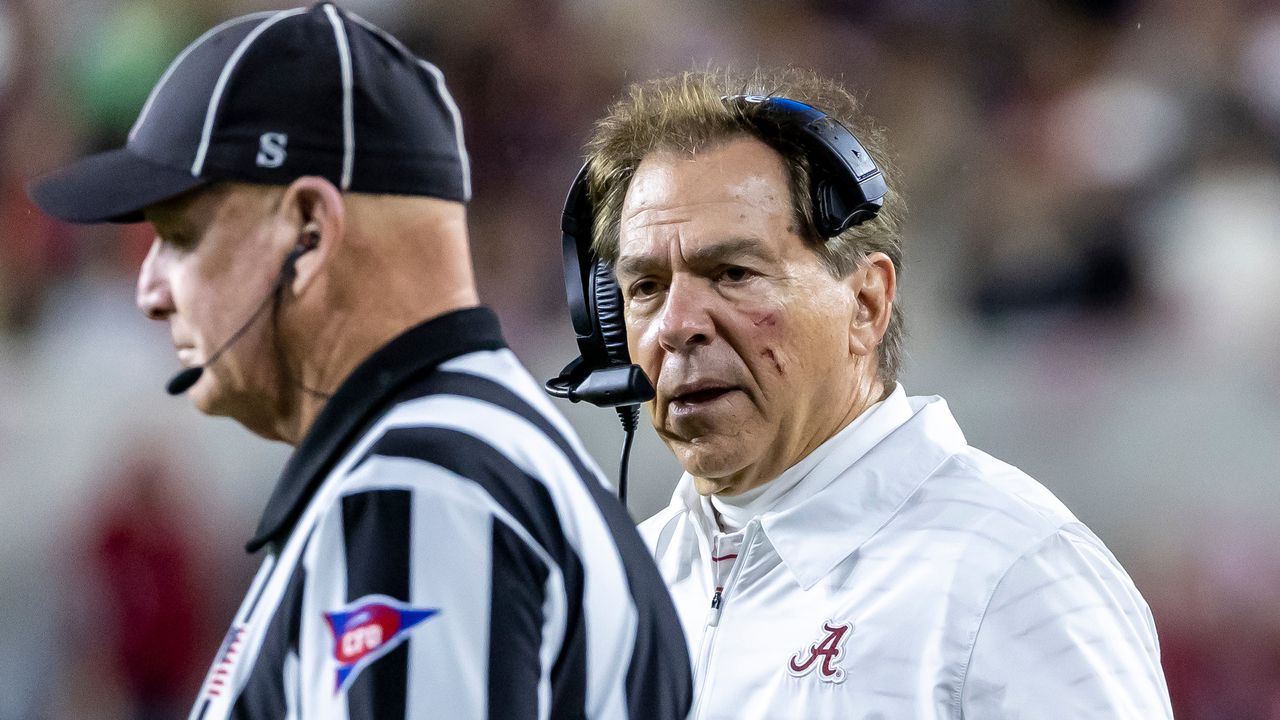Nick Saban ‘kind of for’ the NCAA’s proposed clock rule change
Nick Saban expressed mild support for the NCAA’s proposed clock rule change that would keep the clock running after a first down.
“I’m kind of for the first down thing, but I’m an old NFL guy,” Saban told Sports Illustrated in an interview published Tuesday.
Under current NCAA rules, the clock stops after a first down is gained and restarts after the ball is spotted and the official signals ready-to-play. The proposed rule, announced last week, would keep the clock running after first downs other than the final two minutes of either half.
That would align the college rule mostly with the NFL rule, although the NFL does not make an exception for late-game first downs.
The first-down change and two other minor tweaks proposed by the NCAA’s rules committee still have to be approved by an oversight panel next month.
Another, more extreme proposal of keeping the clock running after incompletions was explored but not advanced by the NCAA rules committee.
“I’m not quite as in favor of the incomplete pass [running clock],” Saban told Sports Illustrated. “You throw a pass 50 yards down the field, it takes people time to get back, and now the clock is running?”
The NCAA hopes the first-down change will speed up games that can stretch three-and-a-half hours or longer while reducing the number of plays run. Saban attributed the high number of plays to no-huddle offenses, and reiterated his longstanding concerns about no-huddle offenses preventing defensive substitutions.
“Everybody in college pretty much goes no-huddle and fast,” he told Sports Illustrated. “Compared to the NFL, where everybody almost gets in a huddle, that makes a huge difference with how many plays are in a game. I’m not saying that should be regulated, but that’s why there are a lot of plays in the game.
“The way it used to be, the [official] would spot the ball and you couldn’t snap the ball [immediately]. When a team can snap the ball within 7 seconds of the [play] clock, is that really good for player safety? I’m just asking the question. When you are on the defensive side, you can’t even change personnel.”
Saban spoke during his “Hey Coach” radio show last November about the need to speed up games.
“There’s a lot of talk about the length of the game in college football,” he said Nov. 3. “When I was in the NFL, there was a lot of research done about how long does the game last? Because it’s an entertainment business. Should it last three hours? TV wants it to last a certain amount of time so they want to know when to put the next game on. Some of our games in college last for four hours, some last for two hours and 45 minutes.
“That is a big difference in how long a game lasts. I know there’s a lot of research being done right now on how can we make the game a little bit more consistent in pace of play — whether it’s not stop the clock on first downs, which they don’t. … There’s a lot of research being done on some of these administrative issues in college football when there’s a lot of good people in college that are trying to make the game a better game and a fairer game for players and fans.”=
Mike Rodak is an Alabama beat reporter for Alabama Media Group. Follow him on Twitter @mikerodak.
